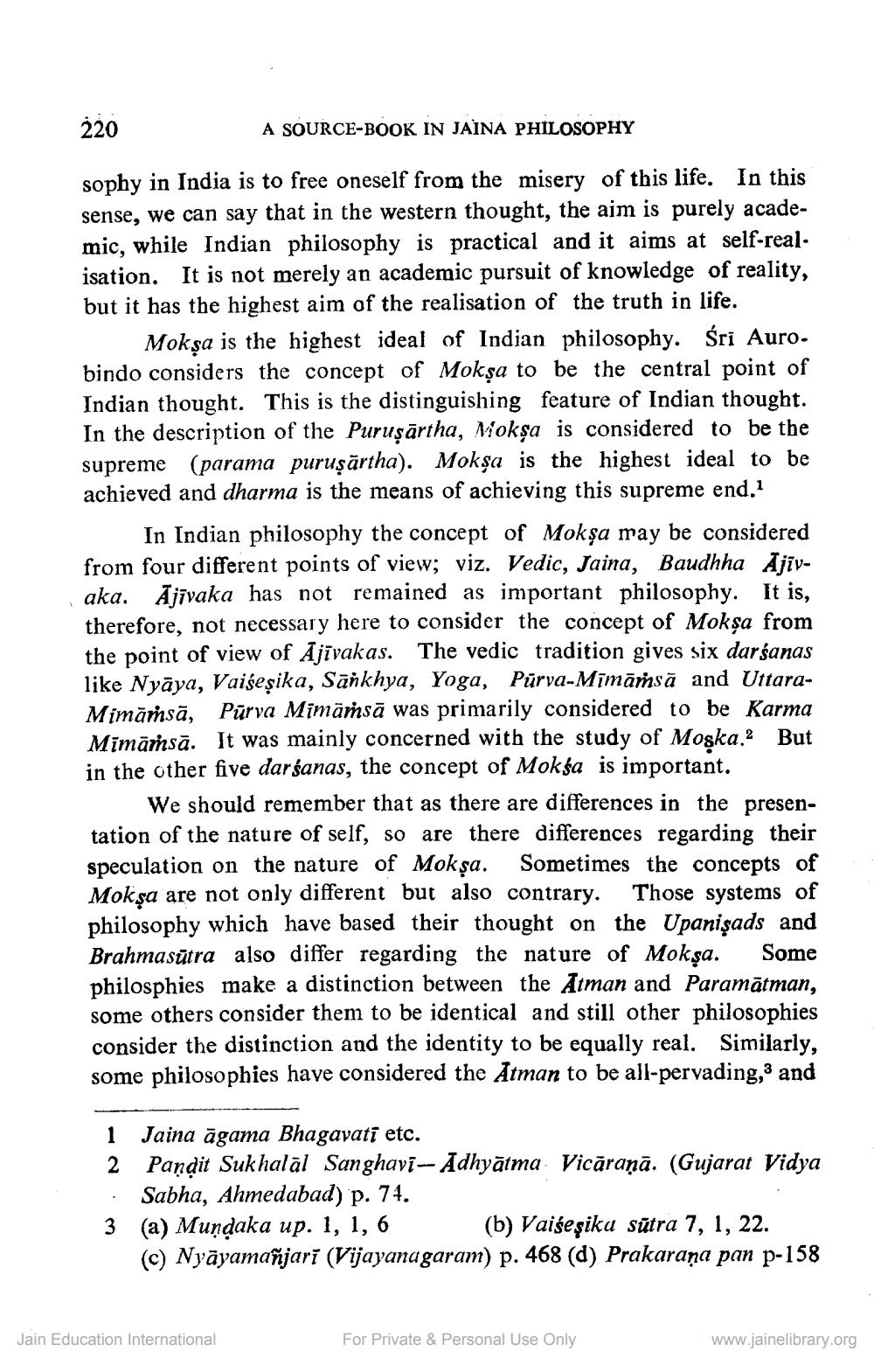________________
220
A SOURCE-BOOK IN JAINA PHILOSOPHY
sophy in India is to free oneself from the misery of this life. In this sense, we can say that in the western thought, the aim is purely academic, while Indian philosophy is practical and it aims at self-realisation. It is not merely an academic pursuit of knowledge of reality, but it has the highest aim of the realisation of the truth in life.
Moksa is the highest ideal of Indian philosophy. Śri Auro. bindo considers the concept of Mokșa to be the central point of Indian thought. This is the distinguishing feature of Indian thought. In the description of the Puruşārtha, Moksa is considered to be the supreme (parama puruşārtha). Mokşa is the highest ideal to be achieved and dharma is the means of achieving this supreme end.
In Indian philosophy the concept of Mokşa may be considered from four different points of view; viz. Vedic, Jaina, Baudhha Ajivaka. Ājīvaka has not remained as important philosophy. It is, therefore, not necessary here to consider the concept of Moksa from the point of view of Ājīvakas. The vedic tradition gives six darśanas like Nyāya, Vaiseșika, Sankhya, Yoga, Pūrva-Mimāṁsā and UttaraMimāṁsā, Pārva Mimāṁsā was primarily considered to be Karma Mimāṁsā. It was mainly concerned with the study of Moska. But in the other five darśanas, the concept of Moksa is important.
We should remember that as there are differences in the presentation of the nature of self, so are there differences regarding their speculation on the nature of Mokşa. Sometimes the concepts of Moksa are not only different but also contrary. Those systems of philosophy which have based their thought on the Upanişads and Brahmasūtra also differ regarding the nature of Mokşa. Some philosphies make a distinction between the Atman and Paramātman, some others consider them to be identical and still other philosophies consider the distinction and the identity to be equally real. Similarly, some philosophies have considered the Atman to be all-pervading, 3 and
1 Jaina āgama Bhagavatī etc. 2 Panạit Sukhalāl Sanghavī-- Adhyātma Vicāraṇā. (Gujarat Vidya • Sabha, Ahmedabad) p. 74. 3 (a) Mundaka up. 1, 1, 6 (b) Vaiseșiku Sūtra 7, 1, 22.
(c) Nyāyamañjari (Vijayanagaram) p. 468 (d) Prakaraņa pan p-158
Jain Education International
For Private & Personal Use Only
www.jainelibrary.org




